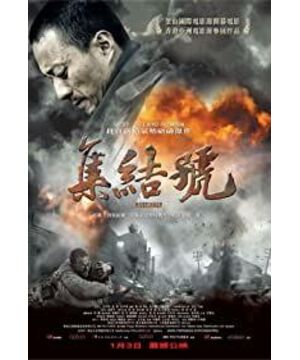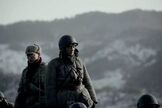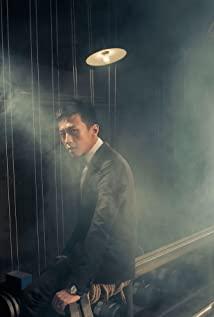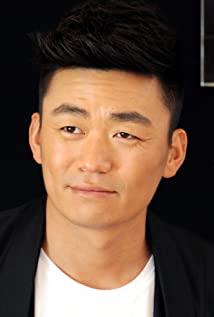I happened to read the original book a long time ago, so knowing that "Assembly" was adapted from this article is full of expectations. Some ideas from the original book have been sitting in my head for a long time, and I tried to see an interpretation of a similar solution in the movie - but did not see it in the end.
To a certain extent, the movie is a work that has almost nothing to do with the original. I always believe that under the current Chinese film censorship system and environment, a movie that you think is okay must read the original book or original script, which can help you understand the so-called flaws and abrupt plots in the movie, and can Let me tell you which are the whitewashes of the movie and talk about it.
Some people say that the original work is not well written, which sets off the exceptionally high level of screenwriters. I basically disagree. In my opinion, comparing the film's dramatic conflict with the simple and straightforward narrative of the original is tantamount to distinguishing the pros and cons between the ink tones of traditional Chinese paintings and the use of colors in Western paintings. What's more, the theme of the film is fundamentally different from the original.
When "Assembly" adapts the story, it avoids several key contradictions in the original work, which may be "necessary" behaviors, but objectively weakens the strength of the story, and also makes some later added plots appear deliberate and dispensable. For example, Gu Zidi bravely rescued Deng Chao in the Korean battlefield, for example, two heartless local cadres were smashed to the bench by Gu Zidi, and others---I think there are at least three "such as".
For example, the movie changed the protagonist's hometown to the north, and did not let him meet a girl on the way to find troops. In the original work, Laogu -- Guzidi -- is a Fujianese, and the battlefield they stick to is in southern Shandong. Laogu, a native of Fujian, took his wife to stay near the old battlefield in Lunan for more than 40 years, just for the first-line opportunity to get news of the lost troops. If you've ever read a text like "Snow White and Red" about the war of liberation, you know how much the soldiers wanted to go back to their hometowns. Lao Gu did not even dare to cross the Yangtze River on the way to find troops, for fear that he would not be able to resist the temptation of his hometown, but such Lao Gu still settled in a small mountain village in North China. In the original book, Lao Gu met a girl when he was ill. This romantic encounter where Lao Gu gritted his teeth and said goodbye was the same temptation as his hometown, but in the movie she became the widow of the instructor's remarriage. In my eyes, She is a dispensable background color like those mountains and forests that the old valley can overlook but cannot be seen in the distance.
For example two, in the original book, Lao Gu was persistent all his life, with only one purpose - to find the head of the regiment and ask whether he was blowing the trumpet or not. In the movie, the road map of Guzidi is unclear, and the basic picture is changed from black to another. First, it was proved in the Korean battlefield that "gold will always shine", and then he became a matchmaker. He didn't turn back until he saw the headstone's tombstone. coal heap. The old Gu in the original book is looking for the answer, in order to give an explanation to the dead brothers, and to get peace of mind for the living self; in the movie, Gu Zidi starts to search for corpses paranoidly in the last third, in order to let them bury them in the ground. Wei An, or who stipulates that "seeing people live and see corpses" can only get the title? Honor has become the main keyword in the movie, and seeking the truth has become the pursuit of a title, as if a medal can appease the soul, as if a title exchanged for 700 pounds of millet can prove the merits and demerits. Outsiders can think this way, but the old valleys who have gone through the cycle of life and death must not be what they need. This is a compromise. Lao Gu, who once ordered the prisoners not to surrender their guns, can only compensate for his life by pursuing a title, but how can that martyr certificate give even a bit of comfort to the mother who humiliated the instructor to the death? It's too late, all the compensation happens after the death of life. Compared with the entanglement between "martyrs" and "missing" in the movie, Laogu in the original book returned to the small mountain village calmly with the helplessness and doubts after learning the truth. feel heavy. In the final screen of the movie, the bright red five-star in the snow is a full stop, and the peaceful departure of Laogu in the original is a series of ellipses. The period is in exchange for our tears, and the ellipsis is the helplessness of reality. Our tears are dried as early as the moment we walk out of the theater, and the helplessness of reality will extend infinitely from the past to the future.
For example, three, in the original book, the truth that Lao Guqiong learned throughout his life eventually brought him into a more heavy and unsolved question. The regiment leader had planned to sacrifice a company in exchange for the safe transfer of the large troops. The soldiers who obeyed the order did not know it was them until they died. Trusted people take the initiative to send them to the dead end. In the movie, this plot turned into a transfer order received by the head of the company after the departure of the Nine Company. Considering the overall situation, he "had to" change the plan and sacrifice the Nine Company. I guess it's a "had to" adaptation of the movie, which circumvents some of the thoughts that have been bothering me before. In the original work, Lao Gu was unable to determine the right or wrong between him and the head of the group until his death, so can we in today's society give the answer? Or, do we need answers? Perhaps for war, there is no distinction between right and wrong and whether any sacrifice is worth it, because any sacrifice is insignificant in great wars and great history. But isn't war in exchange for the right to life and the freedom to live? Shouldn't all life have the right to know the truth (even if it has no choice)? People who died in battle have gone nowhere because of their trust and obedience to the group, but does this trust and obedience give people the power to use and arrange indefinitely? Who can decide the direction of other lives? For all the active and passive souls who have passed away, who will give an account?
The word "person" has been shrunk and shrunk by us over the years, until it becomes a grain of sand in the group, but in the face of sacrifice and dedication, which time is it not relying on the enlargement and enlargement of the individual "person" word, so large that it supports other radiant with life. What can the living give to the fallen. No matter how moved or commemorated, in the face of the disappearance of life, all compensation is actually powerless and pale self-comfort.
View more about Ji jie hao reviews











